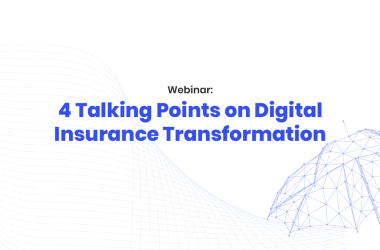According to the 2020 Nigerian Bureau of Statistics, the Nigeria Insurance sector contributed 0.5% to the country’s GDP. Still, there is much room for growth for the industry if the challenges of insurance adoption in Nigeria are solved.
Insurance covers are essential to any country’s stable economic growth, and it is also an indication of the financial inclusion index. In Nigeria, that is not the case because insurance adoption in Nigeria is abysmally low. A Business Day report projects that 9 out of 10 Nigerians do not have insurance cover.
If you speak to professionals in the sector, they’ll tell you running an insurance business is not for everyone; you must have a thick skin and be innovative for continued business sustainability. We spoke to 5 Insurance professionals who requested to be anonymous and have captured their thoughts in this article on the top challenges facing the insurance sector in Nigeria and how to solve them. For the sake of anonymity, we have also changed their names. Check out the top challenges of insurance adoption in Nigeria.
3 Challenges of Insurance Adoption in Nigeria
Poverty and Ignorance: In the words of Bob Marley, “a hungry man is an angry man”. Indeed a hungry man wouldn’t have the money or see the need for insurance cover. According to Dele, he says that “…Nigerians need to begin to see insurance as need not a purchase for something that may never happen”.
“We live in a volatile country; while many are poor, others are just plain ignorant of the buffer insurance cover can provide them,” says Chioma. She recounted her Danfo bus experience. In their usual haste, the bus driver bashed a Honda SUV, he started pleading, and the car owner adamantly refused.
Imagine if he had insurance, it would have saved him a lot of stress and provided him buffer from such financial loss.
Most professionals we spoke to agreed that the government needs to provide a more conducive environment for Nigerians to solve poverty and ignorance. The insurance sector needs to take an educative, community-based and influencer approach to improve insurance adoption.
Digital Innovation and Partnerships: A recurring theme was digital innovation and partnerships during our chat. They identified that Insurers are slow to adopt change. In some cases, the reason was that they lack the will or are not supported by the regulation to implement desired changes.
Business leaders at incumbents were advised to see organisations in the new digital ecosystems as opportunities and not competition. Insurtechs and other digital businesses have the agility and move faster can deliver tailored customer experiences with insurance as a win-win.
“I believe partnerships with insurtech startups and non-insurance businesses who can offer insurance as a service or an add-on to an existing product should partner. I see it as the new frontier for insurance companies to collaborate and deliver customised insurance products to Nigerians, especially the young generation,” says David.
Regulations and Implementation: There are several regulations in Nigeria to deepen the uptake of insurance policies. Examples are compulsory builders insurance and auto insurance.
Chude believes that “ we have enough laws in Nigeria’s insurance sector that are well capable of fast-tracking policy adoption, but the major challenge is with government institutions implementing them”.
He advised that Insurers should continually engage in multiple advocacy initiatives to ensure more Nigerians are held accountable and educated about insurance. There should be stricter consequences for defaulters of compulsory policy as such covers those not protect them alone but other members of society.
The entire traditional insurance stack has evolved from cumbersome processes to a more seamless experience enabled by Artificial intelligence, Machine Learning and Big Data. Early adopters of these technologies will win more market share, increase revenue, onboard more Gen Z and Millennials, expand their distribution, reduce operational costs and build new meaningful partnerships.
We are leading this change for some of our clients. Click here to see how we transformed the claims processes of a Pan African insurance organisation in Nigeria. You can schedule a consultation with our business team here or email business@octamile.com.









